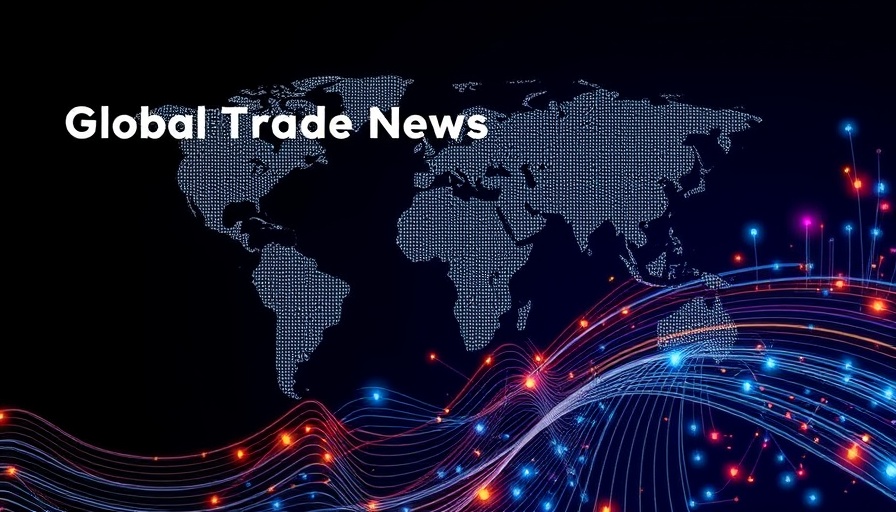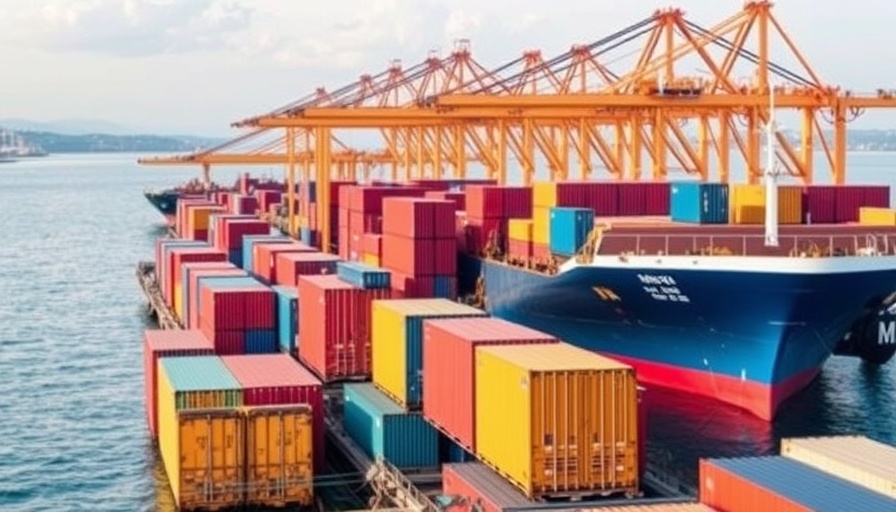
Understanding Trade Regulations: A New Era
As global commerce continues to evolve amidst rising geopolitical tensions, understanding trade regulations has never been more crucial. From tariffs and compliance to emerging economic trends, the landscape of international trade is shifting. At the core of these changes is the necessity for businesses to adapt swiftly to ensure their longevity and competitiveness.
The Impact of Tariffs on Business
Recent reports have highlighted a significant impact of tariffs on the profitability of small businesses. The United States has seen a mixture of tariffs imposed on various goods, with profound corresponding effects on importer costs and consumer prices. This increased financial burden compels businesses to seek innovative strategies to manage rising business costs effectively while maintaining their profit margins.
Strategies for Cost Management in Manufacturing
Improving profit margins in manufacturing requires a combination of foresight and strategic planning. Business executives must consider employing business cost reduction strategies that prioritize both efficiency and quality. The key lies in understanding which areas of production can be optimized, such as reducing lead times from suppliers, while also seeking alternative sourcing strategies to mitigate unpredictable material costs.
Preparing for Economic Disruptions
With the ongoing national security concerns surrounding trade with China, companies must prepare for potential disruptions. Understanding the geopolitical risk associated with sourcing from this region is vital. Executives should prioritize building a resilient business strategy, which includes evaluating the impact of inflation on business health and ensuring compliance with new regulations. Moreover, seeking reliable US suppliers can create more stable supply chains.
Future-Proofing Against Price Volatility
The uncertainties in market prices pose significant challenges for businesses. Executives are navigating rising equipment costs and supplier price increases, often leading to financial strain. It is essential to develop strategies for protecting businesses against price volatility and finding ways to forecast the cost of goods sold accurately.
Actionable Insights for Executives
As we look toward the future, businesses that adopt proactive measures will be better positioned to thrive within this unpredictable landscape. By implementing enhanced supplier management practices and understanding the broader economic effects of tariffs on small business operations, firms can not only survive but potentially excel. The willingness to adapt and innovate will shape the leaders of tomorrow's marketplace.
Conclusion: Take Charge of Your Business Strategy
In light of the complexities and challenges facing global trade today, understanding the nuances of these regulations is vital for long-term success. Executives must remain vigilant in adapting their strategies to ensure both compliance and resilience against economic challenges. As the landscape continues to evolve, businesses should take immediate action to bolster their operations, ensuring they remain competitive in an increasingly complex environment.
 Add Row
Add Row  Add
Add 


Write A Comment